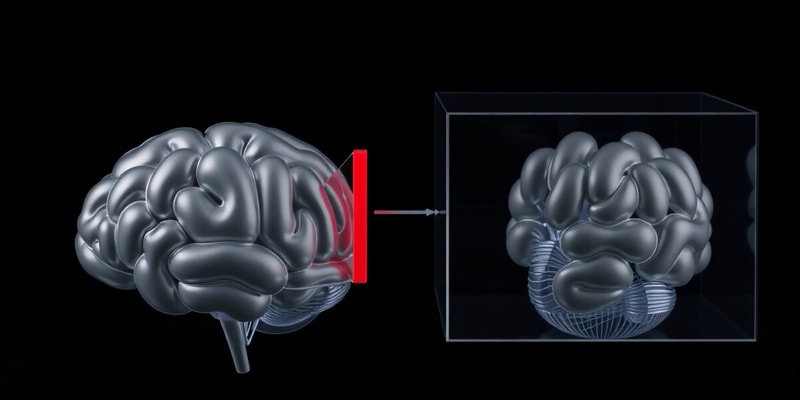Podcast
Questions and Answers
According to cognitivism, how do students learn?
According to cognitivism, how do students learn?
Humans learn through thinking, experimentation, and altering their behavior based on new information. Cognitivists consider learning a long-term change in mental representations, influenced by self-regulated learning.
Which of the following is NOT an assumption of cognitivism?
Which of the following is NOT an assumption of cognitivism?
What does the cognitive perspective suggest about how we respond to a multitude of stimuli?
What does the cognitive perspective suggest about how we respond to a multitude of stimuli?
Our sensory register briefly holds all incoming stimuli. We attend to important information, which then moves to short-term or working memory for further processing. This selective process helps us manage the influx of information.
What is the process of encoding in the memory model?
What is the process of encoding in the memory model?
Signup and view all the answers
What is the process of storage in the memory model? Provide an example.
What is the process of storage in the memory model? Provide an example.
Signup and view all the answers
What is the process of retrieval in the memory model? Provide an example.
What is the process of retrieval in the memory model? Provide an example.
Signup and view all the answers
The three-component model of memory is a perfect representation of human memory.
The three-component model of memory is a perfect representation of human memory.
Signup and view all the answers
What is the duration of information in the sensory register?
What is the duration of information in the sensory register?
Signup and view all the answers
What does capacity refer to in the context of memory?
What does capacity refer to in the context of memory?
Signup and view all the answers
What is the sensory register, and describe its key characteristics.
What is the sensory register, and describe its key characteristics.
Signup and view all the answers
What is working memory, and what are its characteristics?
What is working memory, and what are its characteristics?
Signup and view all the answers
What is long-term memory, and what are its characteristics?
What is long-term memory, and what are its characteristics?
Signup and view all the answers
How does attention play a role in the three-component model of memory?
How does attention play a role in the three-component model of memory?
Signup and view all the answers
Describe the nature of attention.
Describe the nature of attention.
Signup and view all the answers
Which of the following is NOT a factor affecting attention?
Which of the following is NOT a factor affecting attention?
Signup and view all the answers
What is the meaning of the interconnectedness of long-term memory?
What is the meaning of the interconnectedness of long-term memory?
Signup and view all the answers
Describe the different forms of information stored in long-term memory.
Describe the different forms of information stored in long-term memory.
Signup and view all the answers
Which of the following is an example of declarative knowledge?
Which of the following is an example of declarative knowledge?
Signup and view all the answers
Which of the following is an example of procedural knowledge?
Which of the following is an example of procedural knowledge?
Signup and view all the answers
Which of the following is an example of implicit memory?
Which of the following is an example of implicit memory?
Signup and view all the answers
Which of the following is an example of semantic memory?
Which of the following is an example of semantic memory?
Signup and view all the answers
Define rehearsal, elaboration, meaningful learning, and organization in terms of learning.
Define rehearsal, elaboration, meaningful learning, and organization in terms of learning.
Signup and view all the answers
What is rote learning, and how does it differ from meaningful learning?
What is rote learning, and how does it differ from meaningful learning?
Signup and view all the answers
What is automaticity, and give an example?
What is automaticity, and give an example?
Signup and view all the answers
Which of the following is an example of prior knowledge activation?
Which of the following is an example of prior knowledge activation?
Signup and view all the answers
Which of the following is an example of an advance organizer?
Which of the following is an example of an advance organizer?
Signup and view all the answers
Explain the decay theory of forgetting.
Explain the decay theory of forgetting.
Signup and view all the answers
Explain interference and inhibition as theories of forgetting.
Explain interference and inhibition as theories of forgetting.
Signup and view all the answers
What is the difference between repression and suppression?
What is the difference between repression and suppression?
Signup and view all the answers
Explain consolidation theory as a theory of forgetting.
Explain consolidation theory as a theory of forgetting.
Signup and view all the answers
Explain encoding failure as a theory of forgetting.
Explain encoding failure as a theory of forgetting.
Signup and view all the answers
Define concrete concepts and provide an example.
Define concrete concepts and provide an example.
Signup and view all the answers
Define abstract concepts and provide an example.
Define abstract concepts and provide an example.
Signup and view all the answers
Define correlational concepts and provide an example.
Define correlational concepts and provide an example.
Signup and view all the answers
Explain undergeneralization and overgeneralization.
Explain undergeneralization and overgeneralization.
Signup and view all the answers
What is transfer of learning? Briefly describe the main types.
What is transfer of learning? Briefly describe the main types.
Signup and view all the answers
Explain the difference between well-defined and ill-defined problems.
Explain the difference between well-defined and ill-defined problems.
Signup and view all the answers
What are algorithms and heuristics, and how do they differ?
What are algorithms and heuristics, and how do they differ?
Signup and view all the answers
Study Notes
Cognitive Psychology: Learning and Memory
- Cognitivism: Learning is a long-term change in mental representations resulting from thinking, experimentation, and self-regulated learning. Cognitivists believe learning is active, meaning learners impose meaning on information, actively engage in it, and organize it for understanding. Human learning isn't solely determined by the environment; the individual actively participates.
The Three-Component Model of Memory
-
Sensory Register: This initial stage holds sensory input for a brief period (milliseconds to seconds). Attention plays a crucial role; only important details are filtered into the next stage. Capacity is large; duration is very short.
-
Short-Term/Working Memory: This stage holds information actively for processing and manipulation (comprehension, reasoning, etc.). Duration is limited (15-30 seconds without rehearsal) and has a limited capacity (typically 7±2 items). Encoding often occurs auditorally (especially with language).
-
Long-Term Memory: This stage stores information permanently. It has a practically unlimited capacity and extremely long duration. Types include declarative (explicit—facts, events, meanings), and non-declarative (implicit—skills, habits). Memory is interconnected; new information is related and organized to existing knowledge.
Attention and Memory
- Attention: Critical for processing, maintaining information in STM, and encoding into LTM. Several factors—motion, size, intensity, novelty, social cues, emotion, and personal significance—affect attention. Learners can only process a limited amount of information at once. Effective teachers minimize distractions, vary presentation styles, and use engagement strategies to maintain attention.
Encoding, Storage, and Retrieval
-
Encoding: Converting sensory input into a memorable form. Elaboration (connecting new information to prior knowledge) and rehearsal are techniques that can aid encoding.
-
Storage: Holding information in memory. Organizing, linking concepts to increase knowledge storage is important.
-
Retrieval: Accessing stored information. This process can be compromised by factors like stress, poor encoding, lack of cues, or interference from other information.
Forgetting
- Several theories explain why memories are lost. These include;
- Decay: Memories fade or weaken over time if not used or rehearsed.
- Interference: Other information interferes with accessing specific memories (new or old information).
- Repression/Suppression: Unconscious/conscious blocking of distressing memories or information.
- Failure to Retrieve: Inability to access memories due to lack of cues or other factors.
- Construction errors: distortions in memory during recall.
- Insufficient self-monitoring during retrieval: improper assessment of the accuracy of retrieved information.
- Encoding Failures: Failure to properly encode information in the first place interferes with memories being stored in LTM.
Types of Knowledge and Transfer
-
Concepts: Concrete concepts are easily identified, while abstract concepts are less tangible. Students learn concepts through both defining characteristics and correlational aspects (related features).
-
Transfer Learning: Applying previously learned knowledge and skills to new situations (positive or negative). Transfer can be vertical (building on prior knowledge), lateral (applying knowledge from a different area), near (similar situations), far (different situations), and specific (content overlap) or general (different content)
-
Problem Solving: Well-defined problems have clear goals, starting points, and solutions. Ill-defined problems are vague. Algorithms guarantee solutions, while heuristics are mental shortcuts.
Instructional Strategies
- Prior Knowledge Activation: Engage students' prior knowledge to make new learning meaningful.
- Meaningful Learning Set: Help students connect new information with existing knowledge.
- Advance Organizers: Create a framework for new information to aid understanding.
Studying That Suits You
Use AI to generate personalized quizzes and flashcards to suit your learning preferences.
Description
This quiz explores key concepts of cognitive psychology, focusing on learning and memory. Delve into the three-component model of memory including sensory register and short-term memory. Understand the active role of learners in the cognitive process.




